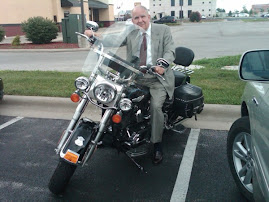JOIN WITH ME IN STANDING ROCK SOLID BEHIND THOSE TRADITIONAL AND CONSTITUTIONAL VALUES THAT HAVE MADE AMERICA THE GREATEST NATION ON EARTH WATCH PART 1 AND PART 2 BELOW, DOUBLE CLICK ON BOTH
LISTEN
WWW
A REAFFIRMATION OF AMERICAN GREATNESS
U.S.Politics
Dr. Phillips Grilling

Iowa State Fair Pork Tent Pork Producers Assn
Mary Beth Phillips at Pork Tent

Iowa State Fair Pork Producers Assn
Dr. Phillips on Police Harley

Bandana Barbeque Springfield Missouri
A Great Farm Family, The John Preussner of Iowa

John, Julie, Ellie, Will and Luke
Friday, November 8, 2013
OPED, JOHN KENNEDY, ISRAEL
JOHN KENNEDY’S LEGACY IN FOREIGN POLICY NEGOTIATIONS AND ISRAEL’S APPARENT LACK OF SOLID WHITE HOUSE SUPPORT
President Kennedy’s Special Counsel Theodore Sorenson advised his leader on many domestic matters throughout a very short presidency. The President’s approach in dealing with foreign affairs is recorded in Sorenson’s notes made by his listening to occasional references by Kennedy himself. Some of the President’s words are vital to an individual’s understanding of the world’s difficulties in arriving at relative peace amidst anger and chaos among nations. His search was an avid pursuit of peace during times of challenge and belligerence. I present them in this narrative hoping to assist other diplomats in finding answers.
Some early quotes from President Kennedy on Foreign Affairs provide to any reader an early insight into his guiding principles for approaching Foreign Affairs.
Let us never negotiate out of fear, but let us never fear to negotiate.
__Inaugural address, 1961
On the Presidential coat of arms, the American eagle holds in his right talon the olive branch, while in his left, he holds a bundle of arrows. We intend to give equal attention to both.
__First State of the Union, Message, 1961
Our policy must blend whatever degree of firmness and flexibility is necessary to protect our vital
interests, by peaceful means if possible, by resolute action if necessary…While we do not intend to see the free world give up, we shall make every effort to prevent the world from being blown up.
__University of North Carolina, 1961
We must face up to the chance of war, if we are to maintain the peace….Diplomacy and defense are not substitutes for one another….A willingness to resist force, unaccompanied by a willingness to talk, could provoke belligerence—while a willingness to talk unaccompanied by a willingness to resist force, could invite disaster…. While we shall negotiate freely, we shall not negotiate freedom….In short, we are neither ‘war mongers’ nor ‘appeasers’ neither ‘hard’ not ‘soft.’ We are Americans.
__University of Washington, 1961
President Kennedy was well aware how dangerous the world had become. Technology had guaranteed that the United States and its chief adversary could destroy each other very quickly. This fact had altered the world’s fragility. Kennedy felt that many people failed to understand that if the day of a massive exchange occurred then the world would end….150 million fatalities in the first eighteen hours, literally 500 World War IIs in less than a day. Really neither the Soviet Union nor the United States could ‘win’ a nuclear war. It would not matter who fired first or was obliterated last there would not be any winners. The world must function and proceed with care in an age when people can obliterate themselves.
Kennedy pointed out to many that the United States and Europe through misjudgments made on all sides brought about great devastation. This now being a thermonuclear age could witness through misjudgment more devastation in a few hours than had occurred in all previous wars. This fact changed his attitude toward communism and co-existence. Although Kennedy abhorred communism he had decided that Khrushchev could pursue what his government believed though repugnant to the President, yet what his government did in the world was the world’s business. President Kennedy believed that peace was a long haul with every man, woman, and child living under the sword of Damocles, hanging by the thinnest of threads, capable of being cut any moment by accident, miscalculation or insanity. Man needed to match his strides in weaponry and technology with equal progress in social and political development. If not, our strength like that of the dinosaur would become incapable of control, and man, like the dinosaur, would vanish from the earth.
The Presidential seal was needled into the design of the carpet in the oval office. Later the President strengthened the olive branch in one of the Eagle’s talons. That talon represented peace. Every waking moment found the President’s attention focused on that objective, peace. All negotiations were occupied with the focus of saving the earth from mass destruction and war. Peace through strength and delicate negotiations took most of the President’s time.
The United States, Kennedy proclaimed, as the world knows, will never start a war. We do not want or anticipate a war. This generation of all Americans has already experienced more than enough of war and killing. We shall be prepared for war, if others desire it. Yet we shall always be vigilant to stop it. We shall also do our part to build a world community where the weak are safe and the strong are just. We are not helpless before that task nor intimidated by its success. Confident and unafraid we journey on—not toward a strategy of destruction but toward a day of peace.
Now the Prime Minister of Israel has revealed to the world the possible construction of a “bad deal” about to be configured in Geneva that would consummate Iranian demands in nuclear negotiations without Israel’s strong diplomatic involvement. Have we forgotten the history of the Nazi takeover of Czechoslovakia when England and France acquiesced in Munich. Are we abandoning Israel and its legitimate concerns to Rouhani personality ploys? We need once again the negotiating skills of John Kennedy or his clone whoever that might be. Are we abandoning the middle east and our friends to chaos and destruction?
I leave diplomats with President Kennedy’s words to ponder: However close we sometimes seem to that dark and final abyss let no man of peace and freedom despair. For he does not stand alone….Together we shall save our planet or together we shall perish in its flames. Save it we can, and save it we must, and then shall we earn eternal thanks of mankind and, as peacemakers, the eternal blessing of God.*
*KENNEDY, Theodore C. Sorenson, Harper & Row, Publishers, New York, NY, p. 522